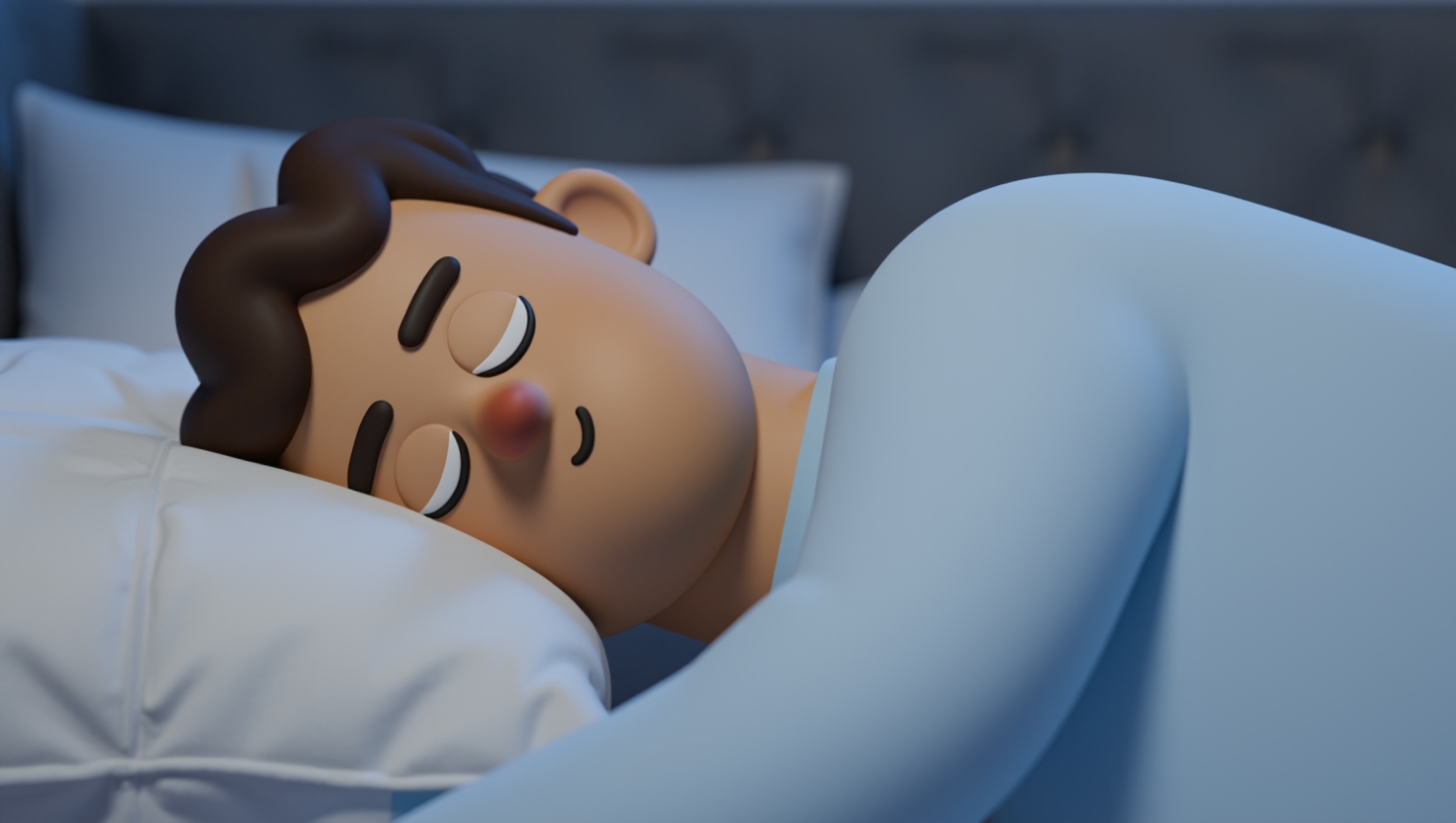Can You Snore with Your Mouth Closed?
When most people think of snoring, they imagine someone sleeping with their mouth wide open, rattling the room with loud breaths. But what if your lips are closed and you still hear that familiar sound? It’s a common question: can you snore with your mouth closed? Understanding the answer is important because different types of snoring can indicate different causes—and knowing why you snore is the first step toward better sleep and improved health.
Snoring isn’t just a nuisance; it can sometimes signal underlying health conditions, such as obstructive sleep apnea. By learning about closed-mouth snoring, you’ll be better prepared to find the right treatment and enjoy more restful nights.
Quick Answer: Can You Snore with Your Mouth Closed?
Yes, you can snore with your mouth closed. While many assume mouth-breathing is the root of all snoring, closed-mouth snoring is not only possible but actually quite common. If you or your partner notice snoring noises while your lips remain sealed, it usually means something is blocking airflow elsewhere, such as in your nose or upper throat.
For example, nasal congestion from seasonal allergies or a cold can narrow nasal passages, forcing air through tight spaces and causing tissues to vibrate. Structural issues like a deviated septum or enlarged nasal turbinates also create turbulent airflow, leading to snoring—even without opening your mouth.
Weak throat muscles contribute as well, especially in older adults or people who consume alcohol before bedtime. Recognizing these causes helps clarify why closed-mouth snoring happens and what can be done.
Causes and Mechanisms of Closed-Mouth Snoring
To understand why you can snore with your mouth closed, it helps to know what’s happening inside your airways during sleep. The airway is a complex system, and anything that narrows or blocks airflow can create snoring sounds. Here are the most common reasons for closed-mouth snoring:
1. Nasal Congestion and Blockages
Congested nasal passages are a major contributor to closed-mouth snoring. Allergies, colds, or sinus issues cause swelling and mucus build-up, which block air from flowing freely through your nose. With limited airflow, air squeezes through narrowed spaces, causing vibrations in soft tissues that produce the characteristic snoring sound—even if your lips stay firmly shut.
For instance, people with chronic allergic rhinitis often wake with a stuffy nose and noticeable snoring despite keeping their mouths closed all night. Viral infections like the common cold produce similar effects by increasing mucus production and nasal swelling.
Managing nasal congestion can often reduce closed-mouth snoring.
2. Structural Issues: Deviated Septum and Nasal Obstructions
Physical differences or damage in the nasal passages can promote snoring even when the mouth is closed.
- Deviated septum: This occurs when the thin wall dividing your nostrils shifts to one side. According to studies, up to 80% of people have some form of septal deviation, although many do not experience symptoms or related snoring. A deviated septum can reduce airflow through one nostril, causing turbulent breathing and vibrations responsible for snoring.
- Nasal polyps: These soft, benign growths inside the nasal passages can significantly block airflow. People with nasal polyps may experience worsening snoring and congestion.
- Enlarged turbinates: These bony structures inside the nose are covered by soft tissue that helps humidify and filter air. When inflamed, they swell and obstruct nasal passages, promoting snoring.
Nasal passages can be thought of as highways; any narrowing can cause airflow turbulence, leading to snoring sounds.
Structural nasal issues often require medical evaluation to improve airflow and reduce snoring.
3. Upper Airway Obstruction
Snoring can originate beyond the nose, further down the upper airway. The soft palate (back of the roof of your mouth), uvula, and throat muscles relax during sleep. If these tissues become overly relaxed or collapse, airflow narrows regardless of whether your mouth is open or closed.
Muscle tone naturally decreases during sleep, but alcohol intake or sedative medications can worsen this effect. Some people with obstructive sleep apnea (OSA) experience repeated airway blockages causing loud snoring, gasping, and interrupted breathing.
Upper airway obstruction is an important cause of snoring with the mouth closed and may indicate more serious conditions.
4. Weak Throat Muscles
Strong throat muscles help keep your airway open while you sleep. Age-related muscle loss, obesity, alcohol consumption, and sleeping position can weaken or relax these muscles excessively.
For example, a middle-aged person who recently gained weight might notice new snoring. Increased throat tissue makes the airway more prone to vibration and collapse—often without opening the mouth.
Maintaining muscle tone and healthy weight can help reduce snoring severity.
Symptoms and Signs of Closed-Mouth Snoring
How can you tell if you snore with your mouth closed? Look for these signs:
- Noisy breathing or rumbling sounds at night, even though your lips remain sealed
- Waking up feeling congested or stuffy in your nose
- Feeling excessively tired or groggy during the day, despite sufficient sleep
- Complaints from your partner about loud snoring not caused by mouth breathing
- Brief pauses in breathing, choking, or gasping during sleep (possibly indicating obstructive sleep apnea)
Many people mistakenly believe that if their mouth is closed, they cannot snore. However, subtle snoring sounds can originate from blocked nasal or throat passages.
Recognizing these signs can help determine if further evaluation is needed.
When to See a Doctor
Occasional snoring from a cold or mild allergies usually isn’t alarming. However, you should seek medical evaluation if you or your bed partner:
- Snore loudly and regularly, affecting your sleep quality or others’
- Experience persistent daytime fatigue, difficulty focusing, or morning headaches
- Notice choking, gasping, or pauses in breathing during sleep
- Have chronic nasal congestion or a persistent blocked nose feeling
These symptoms may indicate obstructive sleep apnea, severe allergies, or significant nasal blockages that benefit from professional diagnosis and treatment.
Dr. Emily Harris, a sleep specialist, advises, “If you experience repeated breathing pauses or your partner notices gasping during sleep, don’t delay evaluation. Untreated sleep apnea increases the risk of heart disease, stroke, and daytime accidents.”
Sleep studies or specialist evaluations—such as those provided by Sleep and Sinus Centers of Georgia—can find the root cause and lead to effective treatments.
Timely medical consultation can help prevent serious health risks.
Treatment Options for Snoring with Mouth Closed
Treatment depends on the underlying cause of your closed-mouth snoring. Here are medical and home-based strategies that may help:
Medical Treatments
- Nasal sprays and decongestants: Over-the-counter or prescription nasal sprays can reduce inflammation and clear congestion. For example, corticosteroid sprays decrease swelling in allergic rhinitis, improving airflow. Note: Decongestant nasal sprays should not be used for more than 3 consecutive days to avoid rebound congestion.
- Surgical treatments: Procedures like septoplasty (correcting a deviated septum) or turbinate reduction can open narrowed nasal passages. Removal of nasal polyps may also be necessary to restore proper airflow.
- CPAP therapy: Continuous Positive Airway Pressure (CPAP), prescribed and monitored by a healthcare professional, is the gold standard treatment for obstructive sleep apnea. It delivers gentle air pressure through a mask to keep your airway open through the night.
- Oral appliances: Custom-fitted dental devices reposition the jaw and tongue, preventing airway collapse and reducing snoring. These require professional fitting and follow-up.
Home and Lifestyle Strategies
- Humidifiers: Dry air irritates nasal and throat tissues; adding moisture can reduce inflammation and ease breathing.
- Head elevation: Sleeping with your head elevated approximately 4 to 6 inches helps keep nasal passages open by using gravity to prevent airway narrowing.
- Allergy management: Reducing exposure to allergens such as dust mites, pollen, and pet dander, combined with appropriate medications, helps clear nasal passages.
- Weight management and alcohol avoidance: Maintaining a healthy weight reduces fatty tissue in the neck that presses on the airway. Avoiding alcohol near bedtime prevents excessive muscle relaxation that worsens snoring.
- Myofunctional therapy/exercises: Targeted throat and tongue exercises have shown promise in some studies but require further research to confirm effectiveness. These exercises may strengthen muscles and reduce snoring frequency and severity over time.
Studies suggest that combining treatments—for example, weight loss plus oral appliances—often improves outcomes more than single interventions alone.
Choosing the right treatment approach depends on individual factors and professional guidance.
FAQs: Can You Snore with Your Mouth Closed?
Q1: Is closed-mouth snoring more serious than open-mouth snoring?
Not necessarily, but closed-mouth snoring can indicate blocked nasal passages or upper airway obstruction, sometimes linked to obstructive sleep apnea (OSA). Paying attention to related symptoms and consulting a healthcare provider if snoring persists is important.
Q2: Can nasal strips help with closed-mouth snoring?
Yes. Nasal strips physically open the nostrils, improving airflow through the nose. They are especially helpful if nasal congestion or mild anatomical narrowing causes your snoring.
Q3: Does sleeping position affect closed-mouth snoring?
Absolutely. Sleeping on your back can allow the tongue and soft tissues to fall backward, narrowing the airway and increasing snoring. Sleeping on your side often helps keep airways more open and reduces snoring.
Q4: How can I tell if I have a deviated septum causing snoring?
Symptoms include chronic nasal congestion, difficulty breathing through one nostril, frequent sinus infections, and snoring that worsens with nasal congestion. An ENT specialist can diagnose this with a physical exam and recommend treatment.
Q5: Can children snore with their mouths closed too?
Yes, children can snore with their mouths closed, especially if they have allergies, nasal congestion, or enlarged tonsils/adenoids. Persistent snoring and breathing pauses during sleep in children should prompt pediatric evaluation to prevent complications such as behavioral issues and poor growth.
Proper evaluation is important for managing snoring across all ages.
Book an Appointment
If you or a loved one snores—especially with the mouth closed—it’s worthwhile to get checked. The right diagnosis can lead to effective solutions and better sleep for the whole family. Sleep and Sinus Centers of Georgia offers comprehensive evaluations and treatments for snoring and sleep-related issues. Contact us today to book your appointment and start your journey toward restful, quiet nights.
Disclaimer:
This article is for educational purposes only and is not medical advice. Please consult a qualified healthcare provider for diagnosis and treatment.
Don’t let allergies slow you down. Schedule a comprehensive ENT and allergy evaluation at Sleep and Sinus Centers of Georgia. We’re here to find your triggers and guide you toward lasting relief.



